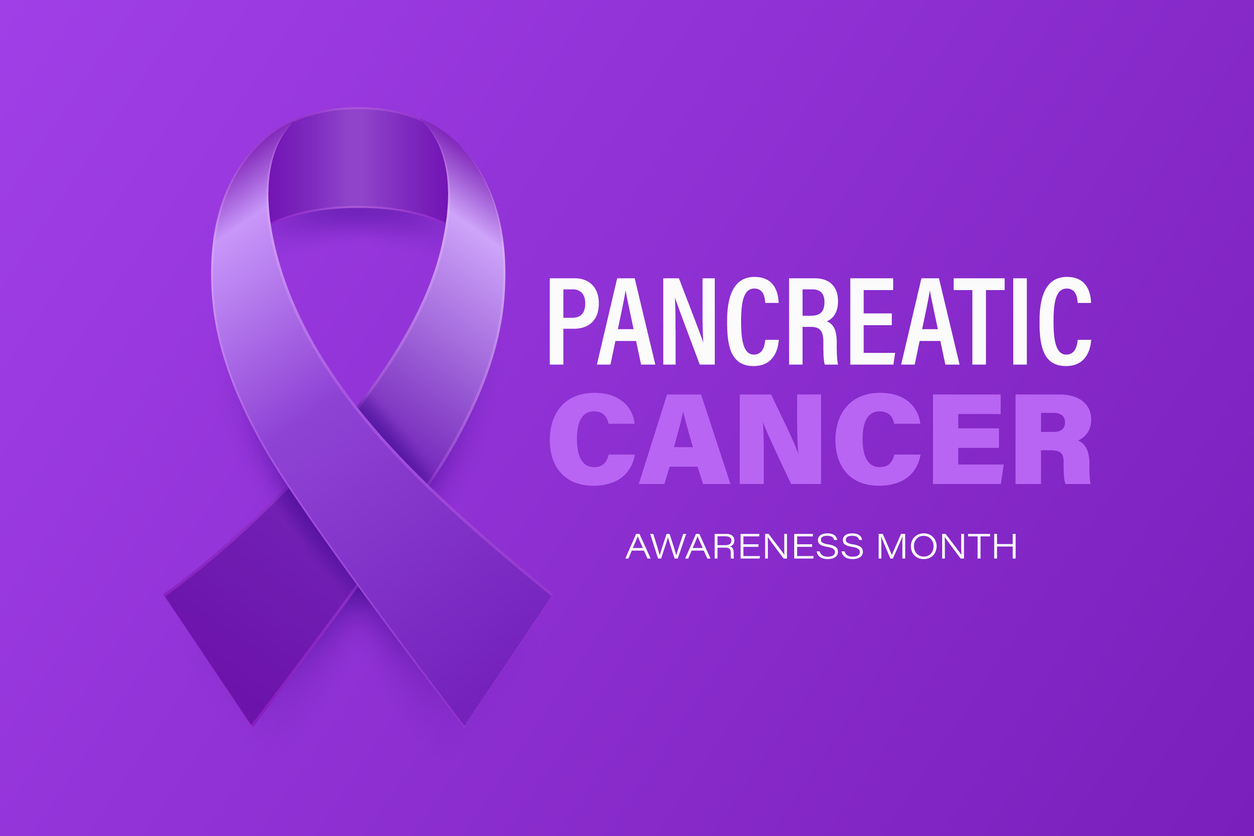It’s November and it’s Pancreatic Cancer awareness month. Don’t know what pancreatic cancer is, no problem. Let’s explain.
Pancreatic cancer is a serious and often aggressive disease that affects the pancreas. The pancreas plays a crucial role in digestion and blood sugar regulation. It occurs when abnormal cells in the pancreas start to grow and divide, which forms a tumor.
While the disease can be daunting, it’s essential to have a clear understanding of its causes, symptoms, and treatment options. Here we will provide valuable information to help you better understand pancreatic cancer.
Causes and Risk Factors
Understanding the potential causes and risk factors of pancreatic cancer is crucial for early detection and prevention. Some common factors include:
- Age: Most cases occur in individuals over 45 years.
- Smoking: Smoking is a significant risk factor for pancreatic cancer.
- Family history: A family history of the disease can increase your risk.
- Obesity: Maintaining a healthy weight and a balanced diet are essential in reducing risk.
- Diabetes: Long-standing diabetes can elevate the risk of developing pancreatic cancer.
Common Symptoms
Recognizing the symptoms is vital for early diagnosis. Symptoms can include:
- Jaundice (yellowing of the skin and eyes)
- Abdominal pain or discomfort
- Unexplained weight loss
- Digestive problems
- Changes in stool color
However, it’s essential to remember that many of these symptoms can be associated with various conditions. Early detection can improve outcomes, so it’s crucial to be proactive about your health. If you have risk factors or notice concerning symptoms, consult a healthcare professional for proper evaluation.
Diagnosis and Staging
Speaking of diagnosing, diagnosing pancreatic cancer involves a combination of imaging tests, blood tests, and a biopsy. Staging helps determine the extent of the cancer, and guides treatment decisions. Staging may range from 0 (localized) to IV (advanced) and affects the prognosis and treatment plan.
Treatment Options
The type of treatment depends on the cancer’s stage and the patient’s overall health. Some treatment options include:
- Surgery: For early-stage tumors.
- Chemotherapy: To shrink tumors or kill cancer cells.
- Radiation therapy: Targeted radiation to destroy cancer cells.
- Targeted therapy: Medications that target specific cancer-related molecules.
Your healthcare team will work with you to create a personalized treatment plan that best suits your needs.
Conclusion
Pancreatic cancer is a scary foe, but with knowledge about its causes, symptoms, and treatment options, you can make informed decisions about your health. Don’t hesitate to seek medical advice and stay vigilant about your health. Remember, early intervention means better outcomes.
For more health information, please visit our blog.

